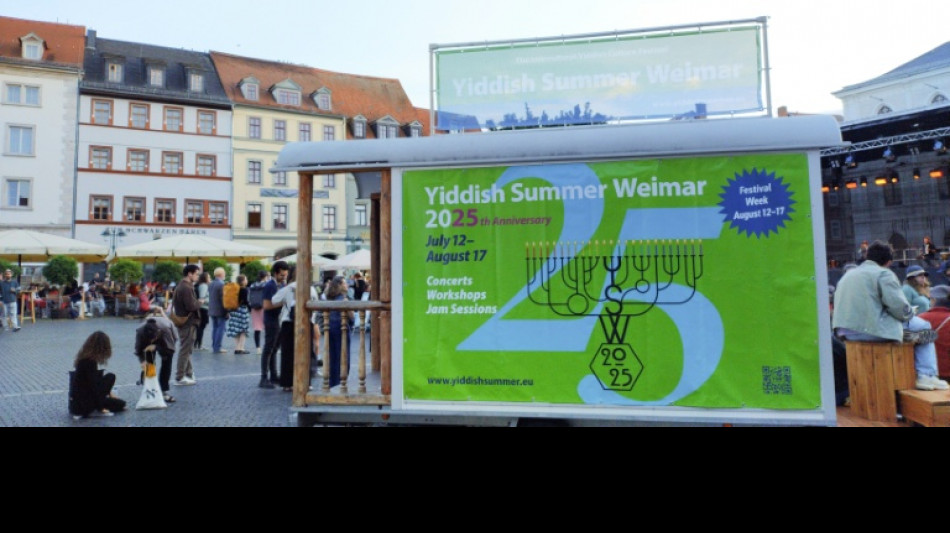
-
 Rams survive Panthers scare to advance in NFL playoffs
Rams survive Panthers scare to advance in NFL playoffs
-
Rallies across US after woman shot and killed by immigration agent
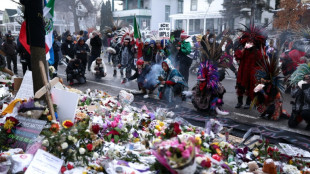
-
 Egypt dump out holders Ivory Coast as Nigeria set up AFCON semi with Morocco
Egypt dump out holders Ivory Coast as Nigeria set up AFCON semi with Morocco
-
Rosenior salutes 'outstanding' start to Chelsea reign
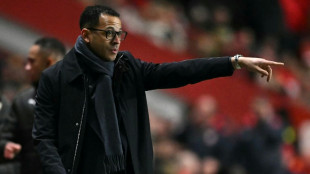
-
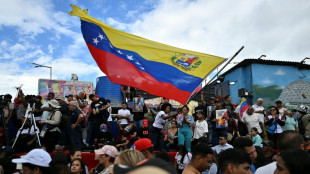 Maduro loyalists stage modest rally as Venezuelan govt courts US
Maduro loyalists stage modest rally as Venezuelan govt courts US
-
Byrne late penalty fires Leinster into Champions Cup last 16 after 'ding-dong' battle

-
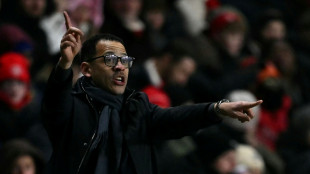 Rosenior makes flying start as Chelsea rout Charlton in FA Cup
Rosenior makes flying start as Chelsea rout Charlton in FA Cup
-
Rallies across US against shooting of woman by immigration agent
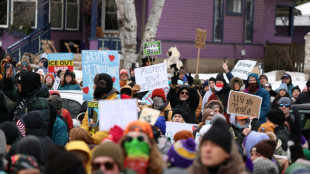
-
 Salah closer to AFCON glory as Egypt dethrone champions Ivory Coast
Salah closer to AFCON glory as Egypt dethrone champions Ivory Coast
-
O'Neil ends 'crazy three days' with Strasbourg cup canter
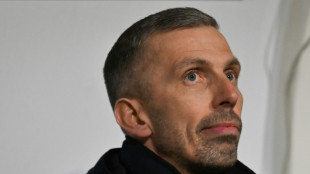
-
 Mitchell leads Cavs over T-Wolves
Mitchell leads Cavs over T-Wolves
-
O'Neil ends 'crazy few days' with Strasbourg cup canter
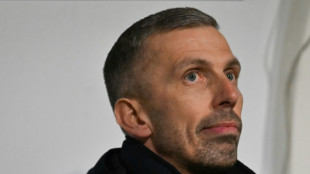
-
 Argentina wildfire burns over 5,500 hectares: governor
Argentina wildfire burns over 5,500 hectares: governor
-
Byrne late penalty fires Leinster into Champions Cup last 16

-
 Roma beat Sassuolo to close in on Serie A leaders Inter
Roma beat Sassuolo to close in on Serie A leaders Inter
-
Villa's FA Cup win at Spurs leaves Frank on the brink

-
 Osimhen focused on Nigeria glory not scoring record
Osimhen focused on Nigeria glory not scoring record
-
Undav calls shots as Stuttgart thump Leverkusen
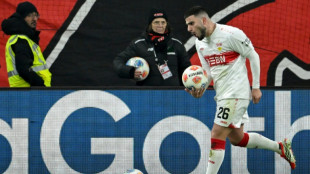
-
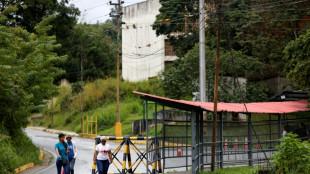 Venezuelan prisoners smile to hear of Maduro's fall
Venezuelan prisoners smile to hear of Maduro's fall
-
Thousands of Irish, French farmers protest EU-Mercosur trade deal
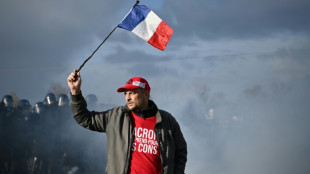
-
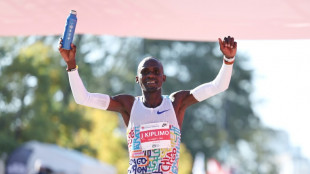 Kiplimo captures third straight world cross country title
Kiplimo captures third straight world cross country title
-
Osimhen leads Nigeria past Algeria into AFCON semi-finals

-
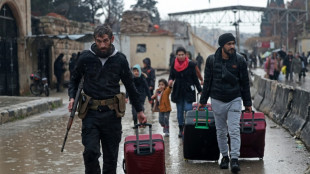 US urges fresh talks between Syria govt, Kurds after deadly clashes
US urges fresh talks between Syria govt, Kurds after deadly clashes
-
Weekend of US protests after woman killed by immigration agent
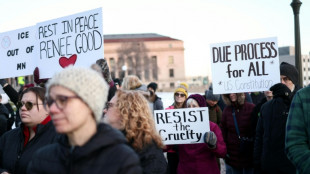
-
 Monaco cling on with 10 men to avoid French Cup shock
Monaco cling on with 10 men to avoid French Cup shock
-
Rooney close to tears as brother masterminds FA Cup history

-
 Semenyo scores on Man City debut in 10-goal rout of Exeter
Semenyo scores on Man City debut in 10-goal rout of Exeter
-
Villarreal sink Alaves to stay in La Liga hunt

-
 Bristol, Glasgow reach Champions Cup last 16
Bristol, Glasgow reach Champions Cup last 16
-
Freiburg beat 10-man Hamburg to climb to eighth in the Bundesliga

-
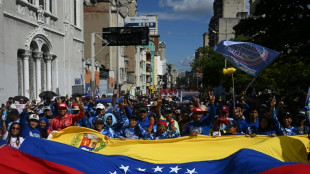 Venezuela loyalists to rally one week after Maduro's capture
Venezuela loyalists to rally one week after Maduro's capture
-
Syrian authorities transferring Kurdish fighters from Aleppo to northeast
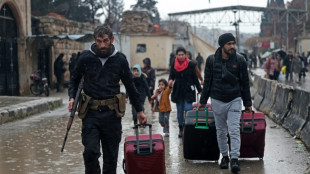
-
 Football: Five memorable FA Cup upsets
Football: Five memorable FA Cup upsets
-
Odermatt warms up for Winter Games with Adelboden giant slalom win
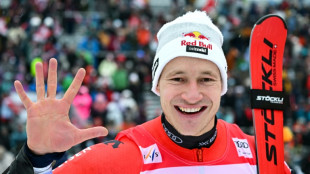
-
 Benin showcases culture with Vodun Days
Benin showcases culture with Vodun Days
-
Iran crackdown fears grow as protests persist

-
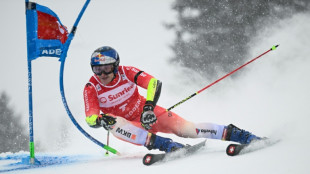 Odermatt wins Adelboden giant slalom for sixth World Cup success of season
Odermatt wins Adelboden giant slalom for sixth World Cup success of season
-
Holders Crystal Palace stunned by Macclesfield in biggest ever FA Cup shock

-
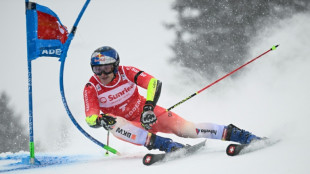 Odermatt wins Abelboden giant slalom for sixth World Cup success of season
Odermatt wins Abelboden giant slalom for sixth World Cup success of season
-
Poland reach United Cup final despite Swiatek loss to Gauff
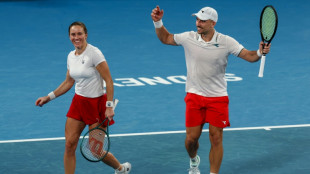
-
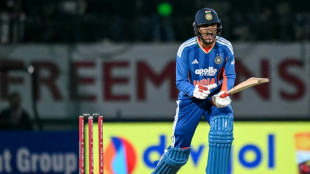 India's Gill calls it 'destiny' after shock T20 World Cup snub
India's Gill calls it 'destiny' after shock T20 World Cup snub
-
'Driven' Vonn storms to 84th World Cup win in Austrian downhill
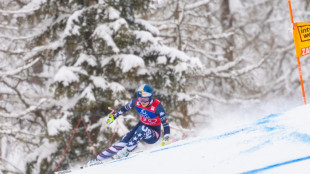
-
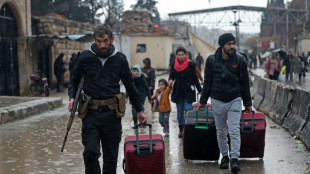 Syrian army says stopping Aleppo operations, but Kurds deny fighting over
Syrian army says stopping Aleppo operations, but Kurds deny fighting over
-
Thousands of Irish farmers protest EU-Mercosur trade deal

-
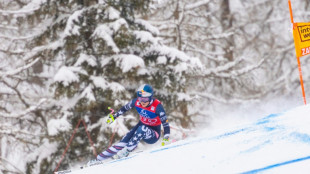 Vonn storms to 84th World Cup win in Austrian downhill
Vonn storms to 84th World Cup win in Austrian downhill
-
Anger over fatal Minneapolis shooting fuels US protests

-
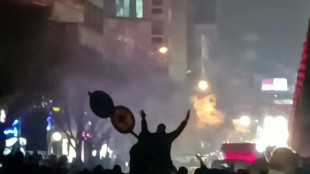 New rallies erupt in Iran as crackdown fears grow
New rallies erupt in Iran as crackdown fears grow
-
Real Madrid not 'kamikaze' with Mbappe health: Alonso

-
 South Africa defends naval drills with Iran, Russia as 'essential'
South Africa defends naval drills with Iran, Russia as 'essential'
-
Alcaraz beats Sinner in sold-out South Korea exhibition match


'Food for the soul': Germany's Yiddish revival
A push to revitalise Yiddish and its cultural traditions has gained momentum in Germany, the very place where the Nazi regime's Holocaust sought to eradicate the Jewish communities who spoke it.
Thousands flocked to the city of Weimar for a recent festival that celebrated the linguistic tradition with workshops, cabaret performances and even heart-stopping circus acrobatics.
Musical offerings ranged from traditional klezmer performances on violin and accordion evoking the Central Europe of old to more modern shows, including psychedelic Yiddish rock.
Yiddish, the language spoken by Ashkenazi Jews across Europe before the Holocaust, is now perhaps best known to many English speakers through words such as "schlep", "klutz" and "chutzpah".
Over the past decade Weimar has become the heartland of the far-right and anti-immigration Alternative for Germany (AfD) party.
But the festivities, which drew visitors and artists from as far as the United States, Ukraine and Australia, ended with a call from the event's artistic director Alan Bern to protect a "diverse society" spanning many parts of the world.
At a concert performance in Weimar's Marktplatz square, Bern reminded the audience that "we are standing on a square where fascism was once celebrated".
"Here we are -- and, until now, they're not here!" Bern said to enthusiastic applause from the crowd.
After an open-air Yiddish singalong Jana Wagner, a 55-year-old teacher, said the community get-together was "food for the soul".
Other festival-goers joined hands in a circle for a folk dance.
- Loss and assimilation -
Before World War II there were estimated to be more than 10 million speakers of Yiddish globally.
Huge numbers perished in the Holocaust, yet even immediately after the war Yiddish was the pre-eminent language among the world's Jews.
Over the second half of the 20th century the number of speakers dwindled further.
That was due in part to assimilation of the Ashkenazi population -- forced and otherwise -- in the Soviet Union, the United States and Israel, where Hebrew is the official language.
Today between 500,000 and a million people are estimated to speak Yiddish in their daily lives, overwhelmingly in ultra-Orthodox Jewish communities.
UNESCO classifies it as an endangered language in Germany and throughout its former sphere of influence in Europe -- from the United Kingdom to Russia and from Scandinavia to Italy -- as well as in Israel.
Many of those drawn to learning the language have Yiddish-related family heritage -- but by no means all.
Some expressive Yiddish words are widely used in English, often in a humorous way -- from "klutz" (a clumsy person) to "schlep" (to carry something burdensome) and "chutzpah" (a term for audacity, or sheer gall).
Yiddish emerged around 1,000 years ago from the German spoken in that period, and the two languages still share many words in common.
Even today, "for people who have German as a first language, it's fairly easy to understand," said 66-year-old retiree and festival attendee Sabine Lioy.
- 'Danger of nostalgia' -
Berlin, for a time in the early 20th century, was a honeypot for Yiddish writers and artists, said poet and activist Jake Schneider.
"It was absolutely essential to go to Berlin if you wanted to see and be seen," said Schneider, part of Berlin's contemporary Yiddish cultural scene.
Today, the city has once again become one of the most important centres of secular Yiddish life.
Its longstanding arts scene and anarchic energy feed into avant-garde pop-up art exhibitions, Yiddish open mic nights and dance parties.
Schneider said he and many of those active in the Yiddish scene are alive to the "danger of becoming really wrapped in a ball of nostalgia and wistfulness".
Instead, the language has become a way for them to discuss Jewish identity and politics today.
In Weimar, one of the best-known musicians working in Yiddish, Daniel Kahn, addressed the painful topic of militant group Hamas' October 7 attacks on Israel, and the devastating military response in the Palestinian territory of Gaza.
"Their deaths will not revive the dead," he sang, performing a work by Yiddish poet Zackary Sholem Berger written about the Gaza war.
"Their hunger is not our bread."
As Kahn told the audience, Yiddish language and culture, with their centuries-old tradition, are also a way of "confronting the present and even the future".
E.Qaddoumi--SF-PST




